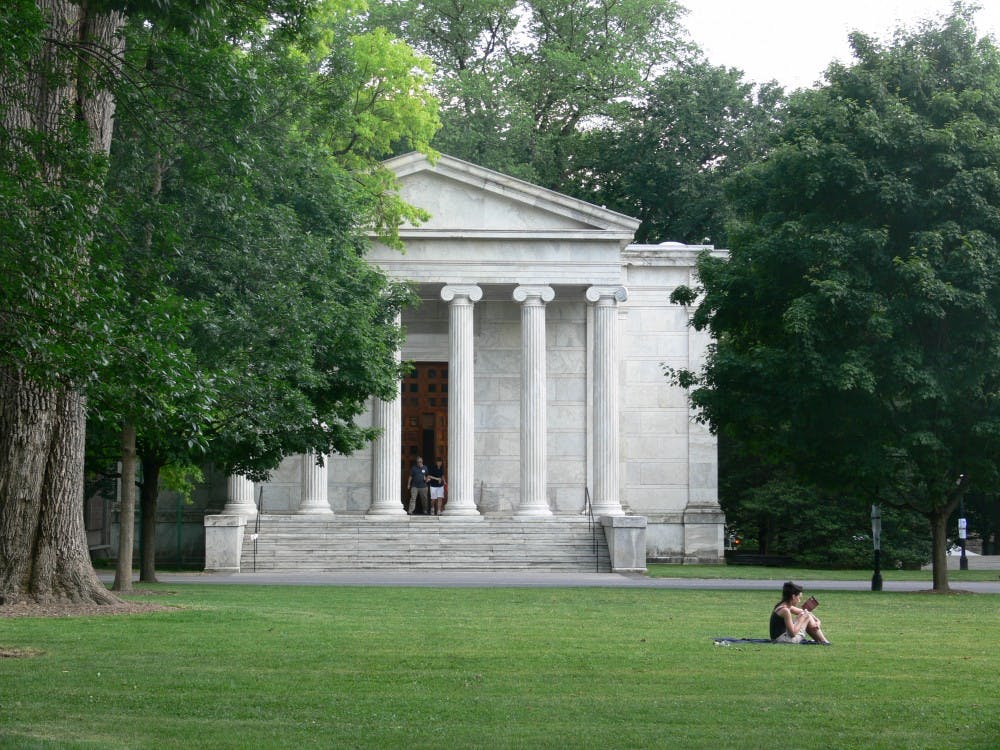Picture this: you open your latest email from a Princeton account, and you see a fellow student has chosen to address your entire residential college. The topic, this time, is academic standards; the email says the University hasn't held up its end of the bargain, so we are no longer bound, as fundamentalists by scripture, to its outdated, Boomer ethics! The email inquires what is so bad about plagiarism in the end? Of course, such a message has not been distributed among us undergrads. But if we were to receive such an email, there would be a common understanding that its contents are incompatible with how we are taught to carry ourselves and even to think as students in good standing at an elite university. The same is not the case, however, for something as simple as affirming the equality and humanity of all in our class.
In other words, we are conditioned to value our own personal integrity, as measured by the amount of time between the end of an exam and the laying down of a writing utensil, more than the integrity of a University that, until recently, displayed prominently the name of a man who would just as soon see many of our classmates barred from the school to begin with.
At the beginning of the 20th century, Lenin admonished some of his more fickle comrades not to besmirch the grand word freedom. We find ourselves, needless to say, in a very different time and place. And now, it is integrity, not freedom, that should not be besmirched. Narrowly defining integrity as a manifestation of merit, almost exclusively in the field of academics, betrays a warped sense of what it actually means to stand for something, to exhibit courage, or to put oneself on the line in some nontrivial way.
In order to understand how we got here, and why we cannot afford to stop moving, it is helpful to look a bit into recent events. About a week ago, President Eisgruber announced that the Board of Trustees elected to remove President Wilson's name from both the residential college and the public policy school. No doubt, this is a positive development. But given how it was unfurled, no one who has even heard the phrase “public relations” could identify it as anything but that. Simply read the testimony Black Justice League published soon after that cleared up the actual history of the matter, which barely rated a drive-by mention in Eisgruber’s opinion and note to the community.
Apologizing for the treatment of the BJL when all of this started, along with focusing on the courage of people like my friend Julia (like The New York Times did, at least), might have been a good way of introducing the Princeton community to this good news. But no: such would have been to defeat the purpose. We, as students, are not to take credit for the ideas of others when we write. But when administration responds to the most modest demand of previously reviled office occupiers, or to that of a columnist whose words are expedient for them to take seriously only just now, this is framed as an “extraordinary measure,” one for which they took the lion’s share of initiative.
Since this gratifying, if ultimately inadequate announcement, we have been hearing from some among us who are, to say the least, less than enthusiastic about the recent uptick in discussion of race relations. They argue their studies should be allowed to proceed uninterrupted by what they view as pesky concerns of people who simply want their place in the University to be as rock-solid as the regime of academic integrity seems to be.
To broaden our sense of what it means to live in community with one another and to elevate to the status of regular and serious discussion the racial oppression that is perhaps the core feature of American empire is the furthest thing from a totalitarian suggestion: it is at the same time an act of decency and an impetus to intellectual rigor that has been largely absent.
As part of this University, we should be tied together more by seriousness regarding racial justice than by the disciplinary matters that many of us promote and pride. One might say I'm trying to politicize concepts such as “integrity” and “community,” and maybe even “intellectual rigor.” My response, of course, is that such words have already been politicized, rendered simultaneously grand and nebulous by an academic culture that prizes personally abiding by the rules, more than and even as opposed to collective efforts at the significant change that our time calls for. It's time to stop besmirching the grand word integrity, to put it in the proper context, and to leave the committee room, so we might one day return to it, all in equal standing.

Braden Flax is a senior from Merrick, N.Y. He can be reached at bflax@princeton.edu.









